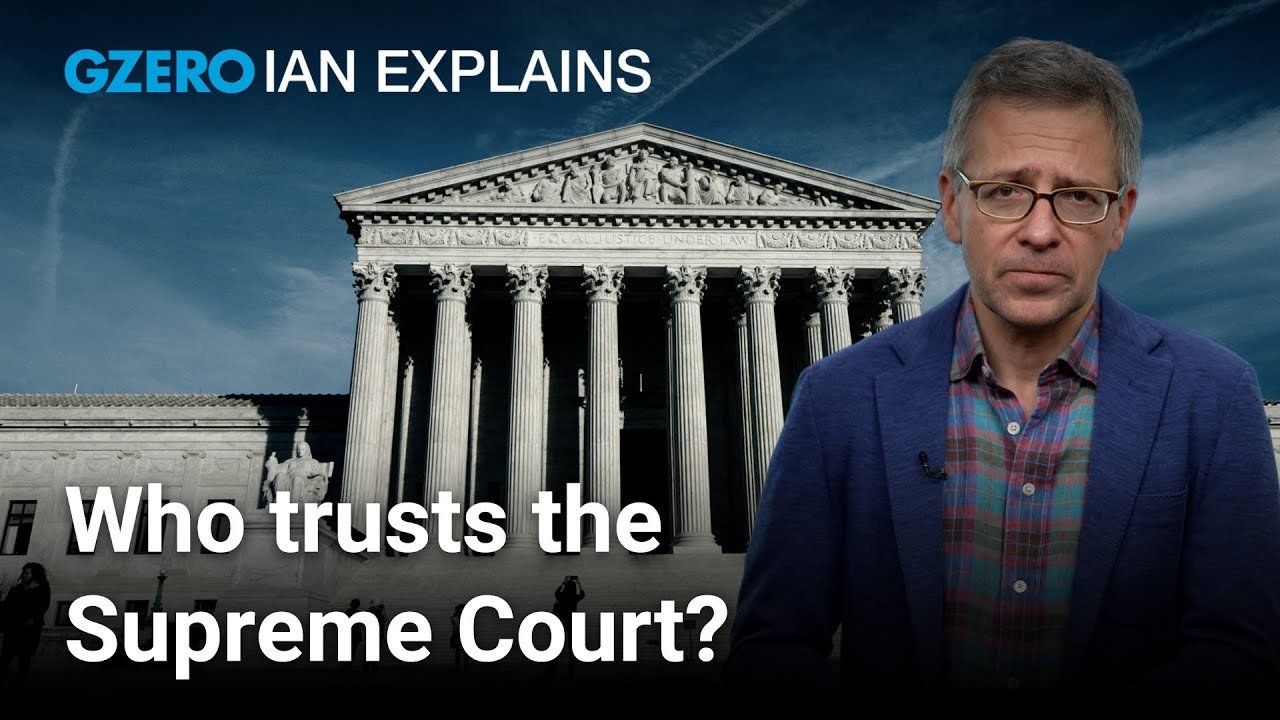Ian Explains
Ian Explains: Does it matter if Americans don't trust the Supreme Court?

Ian Explains: Does it matter if Americans don't trust the Supreme Court? | GZERO World

Public approval for the US Supreme Court is at an all-time low. But how much does that matter really? On Ian Explains, Ian Bremmer breaks down why voters believe the Court has become more partisan and politically motivated in recent years and whether public perception makes any difference in how it operates.
According to Gallup polling, SCOTUS has had a strong net approval rating, much higher than the President and Congress, for most of the last 25 years. But as of September 2023, 58% of Americans disapproved of the Supreme Court, a record high. The Court’s credibility has come under fire following ethics scandals involving Justice Clarence Thomas and a string of 6-3 conservative majority opinions, like the June 2022 Dobbs v. Jackson Women’s Health Organization decision overturning Roe v. Wade, increasingly out of step with public opinion.
It’s a class question of separation of powers: The justices aren’t elected, and the judicial branch of government isn’t designed to respond to popular will. But if SCOTUS falls out of step with voters completely, it risks losing the very thing that gives it legitimacy: public faith.
As expected, the Supreme Court struck down the bulk of Donald Trump's sweeping “Liberation Day” tariffs as illegal … and almost nothing changed.
Chris, an Army veteran, started his Walmart journey over 25 years ago as an hourly associate. Today, he manages a Distribution Center and serves as a mentor, helping others navigate their own paths to success. At Walmart, associates have the opportunity to take advantage of the pathways, perks, and pay that come with the job — with or without a college degree. In fact, more than 75% of Walmart management started as hourly associates. Learn more about how over 130,000 associates were promoted into roles of greater responsibility and higher pay in FY25.
Somewhere in the Donbas region, Ukrainian soldier Artem Bondarenko says he hasn’t slept through the night in months as he defends Eastern Ukraine.
In the latest episode of Vladimir Putin and Xi Jinping's hit wellness podcast This Authoritarian Life, we learn how positive communication patterns can break negative cycles in our relationships -- especially our relationships with Iran, Syria, Venezuela, and Cuba. #PUPPETREGIME